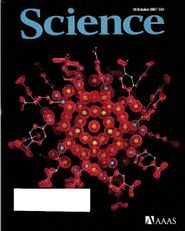Difference between revisions of "Main Page"
Jump to navigation
Jump to search
(fellows) |
(PyMOL 3.0 release) |
||
| (10 intermediate revisions by 4 users not shown) | |||
| Line 28: | Line 28: | ||
{| class="jtable" style="float: left; width: 90%;" | {| class="jtable" style="float: left; width: 90%;" | ||
|+ style="font-size: 1.4em; font-weight: bold; text-align:left; border-bottom: 2px solid #6678b1;" | News & Updates | |+ style="font-size: 1.4em; font-weight: bold; text-align:left; border-bottom: 2px solid #6678b1;" | News & Updates | ||
| + | |- | ||
| + | ! Official Release | ||
| + | | [https://pymol.org PyMOL v3.0 has been released] on March 12, 2024. | ||
| + | |- | ||
| + | ! New Plugin | ||
| + | | [[CavitOmiX|CavitOmiX]] calculate [https://innophore.com Catalophore™ cavities], predict protein structures with [https://www.nvidia.com/en-us/gpu-cloud/bionemo OpenFold by NVIDIA-BioNeMo], [https://ai.facebook.com/blog/protein-folding-esmfold-metagenomics/ ESMFold] and retrieve [https://www.deepmind.com/research/highlighted-research/alphafold Alphafold] models | ||
| + | |- | ||
| + | ! Official Release | ||
| + | | [https://pymol.org PyMOL v2.5 has been released] on May 10, 2021. | ||
| + | |- | ||
| + | ! Python 3 | ||
| + | | New [[2to3|Python 3 compatibility guide]] for scripts and plugins | ||
|- | |- | ||
! POSF | ! POSF | ||
| − | | [https://pymol.org/fellowship New PyMOL | + | | [https://pymol.org/fellowship New PyMOL fellowship announced for 2022-2023] |
|- | |- | ||
! Tutorial | ! Tutorial | ||
| [[Plugins Tutorial]] updated for PyQt5 | | [[Plugins Tutorial]] updated for PyQt5 | ||
| − | |||
| − | |||
| − | |||
|- | |- | ||
! New Plugin | ! New Plugin | ||
| − | | [[ | + | | [[PICv|PICv]] is a new plugin for clustering protein-protein interactions and visualization with available data from PDBe |
|- | |- | ||
! Selection keywords | ! Selection keywords | ||
Latest revision as of 12:54, 12 March 2024
| The community-run support site for the PyMOL molecular viewer. |
| To request a new account, email SBGrid at: accounts (@) sbgrid dot org |
| Tutorials | Table of Contents | Commands |
| Script Library | Plugins | FAQ |
| Gallery | Covers | PyMOL Cheat Sheet (PDF) | Getting Help |
|
|
 A Random PyMOL-generated Cover. See Covers.
| ||||||||||||||||||||||||||||||||||
